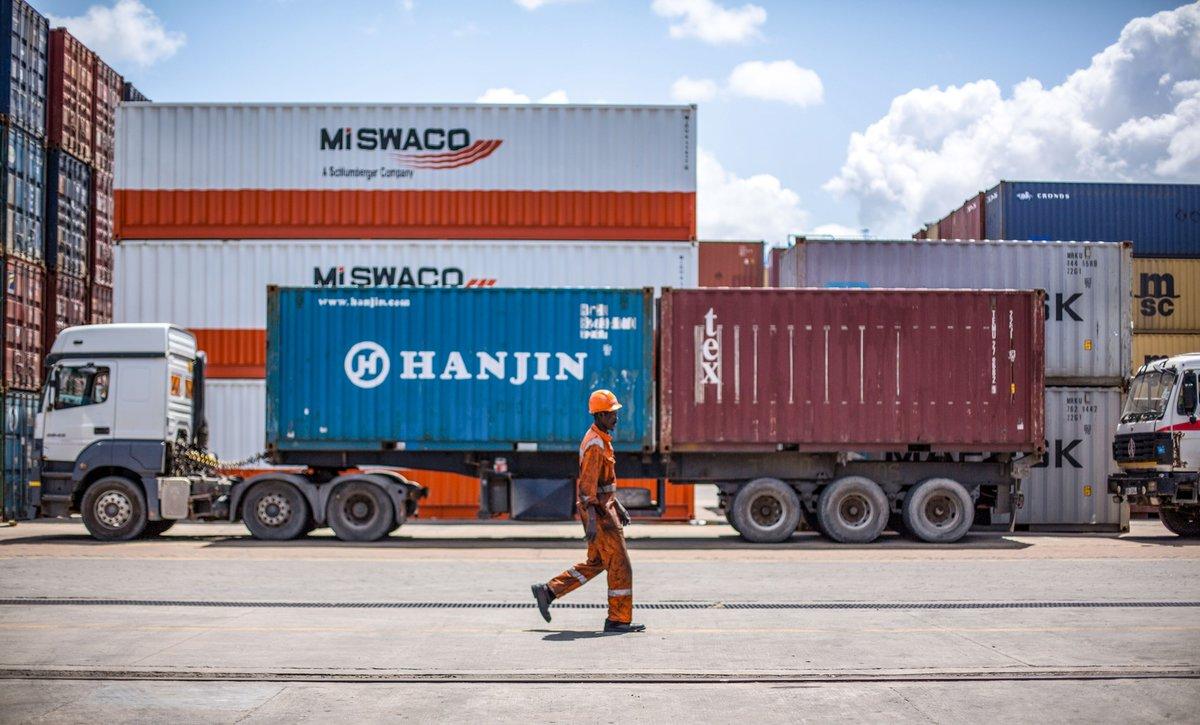The EU’s Generalised Scheme of Preferences grants unilateral tariff preferences to developing countries as a means of supporting their economic and social development. Pictured, the Port of Mombasa in Kenya © Make it Kenya Photo / Stuart Price
IEEP has submitted feedback to the public consultation on the EU’s Generalised Scheme of Preferences.
 IEEP’s response to the public consultation on the EU’s Generalised Scheme of Preferences (PDF 150 KB) IEEP’s response to the public consultation on the EU’s Generalised Scheme of Preferences (PDF 150 KB) |
In the context of the EU trade policy, the Generalised Scheme of Preferences (GSP) allows developing countries to pay fewer or no duties on exports to the EU as a means of supporting their economic and social development. The scheme also promotes human rights, employment standards, sustainable development and good governance practices in trade partner countries.
The regulation governing GSP expires on 31 December 2023. Consequently, the European Commission organised a public consultation, which closed on 15 July, with a view to supporting preparatory work on a planned future scheme.
According to the Commission’s mid-term evaluation (2018) the current GSP regime has delivered several of its objectives, with exports from GSP countries to the EU having expanded considerably during the duration of the scheme. There is also evidence that the scheme has contributed positively to promoting and protecting human and labour rights in trade partner countries, however, its impacts on the environment are less clear.
IEEP welcomes the proposition of renewing the GSP Regulation, supporting a significant update and expansion of the scheme.
In IEEP’s view, the EU GSP Regulation is in need of a significant update to reflect the recommendations of the mid-term evaluation, to fit the wider EU policy context under the Green Deal, and to secure global sustainable development within the context of the Sustainable Development Goals (SDGs).
IEEP recommends a review of three essential areas pertaining to the GSP:
- Greater policy coherence between the renewed GSP and other EU policy areas;
- Support and boost trade in sustainable/green goods;
- Expand and bolster social and environmental conditionalities.
Greater policy coherence between the renewed GSP and other EU policy areas
Ambitious domestic EU policies adopted in the wake of the EU Green Deal can alter the flow of goods from GSP countries to the EU.
One of the key policies in this regard is the EU’s Circular Economy Action Plan (CEAP) that foresees the elevation of standards for a range of sectors and key value chains (electronics & ICT, batteries & vehicles, packaging, plastics, textiles, high impact intermediary products).
For example, EU is a key export market for textiles from the GSP countries and, therefore, higher EU sustainability standards can possibly acting as a non-tariff barrier to imports from GSP countries. To address this, better policy coherence is needed between the EU trade and development cooperation policies, with focus on supporting increased sustainability and standards within GSP countries’ textile sector (e.g. as part of EU Aid for Trade scheme).
Greater policy coherence is also necessary in the case of the EU’s planned carbon border adjustment mechanism (CBAM). If the CBAM will be limited to carbon-intensive industries (e.g. aluminium, cement, chemicals and steel) this will have a limited negative impact on GSP countries, as their exports do not make up a significant share of these industries.
However, if the CBAM also covers other sectors this could create important barriers to GSP countries as EU trading partners. For example, if the CBAM is based on the average production method in a given country, it could result in disincentivising firms making headway on low-carbon production.
Support and boost trade in sustainable/green goods
The renewal of the GSP Regulation should also aim to boost trade in sustainable goods by reviewing current trade rules that may hamper the development and export of these goods.
Two well-known barriers to trade in sustainable goods in the GSP context are the ‘rules of origin’ and the ‘graduation of products’. Relaxing the conditions surrounding these rules for low carbon and sustainable (e.g. circular) goods, could stimulate the demand for climate-friendly products and encourage export diversification in sustainable goods for GSP countries.
| See IEEP’s submission to the public consultation for further detail on these barriers |
Expand and bolster social and environmental conditionalities
Under the EU Green Deal, all future EU Free Trade Agreements (FTA) are foreseen to be Paris compatible by accounting for not only trade in more sustainable goods and services but also the minimisation of adverse climate and broader environmental impacts resulting from trade liberalisation. This green momentum should be carried through into the renewal of the GSP Regulation – as well as other unilateral and multilateral trade agreements – to secure global climate objectives.
According to the 2018 mid-term evaluation, there is no clear indication that the current GSP regime has contributed to environmental sustainability in trade partner countries, including incentivised the implementation of global environmental conventions. Consequently, the future GSP Regulation needs to consider including stronger climate and environmental conditionalities that are both enforceable and subject to monitoring, reporting and verification to ensure compliance.
IEEP’s response to the European Commission’s public consultation drew on a number of papers, including Kettunen, Gionfra & Monteville (2019), Charveriat & Deere Birkbeck (2020) and Blot, Kettunen & Charveriat (2020). The response was compiled by Eline Blot, Gauthier Schefer, Marianne Kettunen and Céline Charveriat. For more information on IEEP’s work on this area, please contact Marianne Kettunen (mkettunen@ieep.eu).


